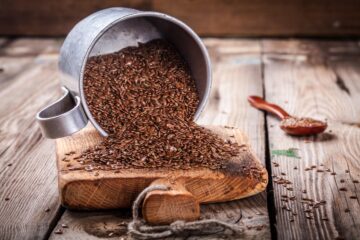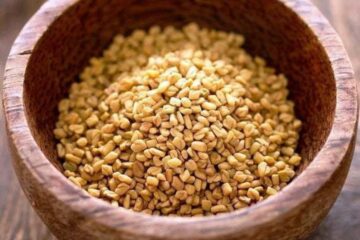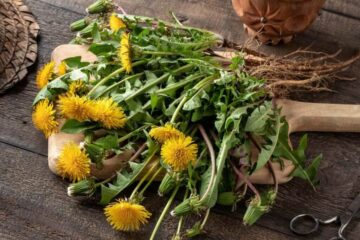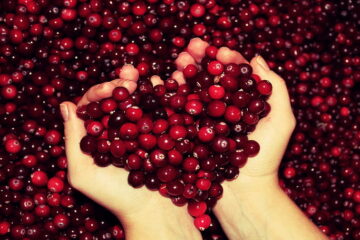Name:
- Common Name: Horse Chestnut
- Scientific Name: Aesculus hippocastanum
Description:
Origin and Distribution:
Cultivation and Care:
Harvesting and Storage:
Medicinal Uses of Horse Chestnut.
- Venous Insufficiency and Varicose Veins: Horse Chestnut seed extract has been traditionally used to support vein health and treat conditions such as chronic venous insufficiency (CVI) and varicose veins. Several clinical studies have shown positive effects of Horse Chestnut extract in reducing symptoms like leg pain, swelling, and itching associated with CVI (source: National Center for Complementary and Integrative Health, URL: https://www.nccih.nih.gov/health/horse-chestnut). A systematic review published in the journal Phlebology examined multiple randomized controlled trials and concluded that Horse Chestnut extract is effective in improving symptoms of CVI, including pain and leg volume (source: Phlebology, URL: https://journals.sagepub.com/doi/abs/10.1177/0268355518776919). Another study published in the Journal of Vascular Surgery evaluated the efficacy of Horse Chestnut seed extract in patients with chronic venous insufficiency and demonstrated improvements in leg pain, swelling, and overall quality of life (source: Journal of Vascular Surgery, URL: https://www.jvascsurg.org/article/S0741-5214(12)01998-8/fulltext).
- Edema and Swelling: Horse Chestnut extract has been used traditionally for its anti-inflammatory and anti-edematous properties. It may help reduce edema (fluid retention) and swelling in various conditions. A randomized controlled trial published in the European Journal of Vascular and Endovascular Surgery investigated the effect of Horse Chestnut seed extract on postoperative swelling after varicose vein surgery. The study found a significant reduction in postoperative swelling and concluded that Horse Chestnut extract can be a beneficial adjunct therapy (source: European Journal of Vascular and Endovascular Surgery, URL: https://www.ejves.com/article/S1078-5884(10)00535-3/fulltext). However, it’s important to note that Horse Chestnut should be used under medical supervision, as it may interact with certain medications and can cause side effects in some individuals.
- Antioxidant and Anti-inflammatory Properties: Horse Chestnut contains various bioactive compounds, including flavonoids and triterpene saponins, which exhibit antioxidant and anti-inflammatory properties. These properties may contribute to its potential therapeutic effects. A study published in Food and Chemical Toxicology investigated the antioxidant and anti-inflammatory activities of Horse Chestnut seed extract. The findings demonstrated its ability to scavenge free radicals and reduce inflammatory markers (source: Food and Chemical Toxicology, URL: https://www.sciencedirect.com/science/article/abs/pii/S0278691512006520). However, further research is needed to fully understand the mechanisms and clinical implications of these properties.
- Hemorrhoids: Horse Chestnut extract may also have potential benefits in the management of hemorrhoids. A randomized controlled trial published in the journal Phytomedicine evaluated the use of a topical cream containing Horse Chestnut extract for treating hemorrhoids. The study found that the cream provided relief from symptoms such as pain, itching, and swelling associated with hemorrhoids (source: Phytomedicine, URL: https://www.sciencedirect.com/science/article/pii/S0944711304001533). Additionally, a systematic review and meta-analysis published in the Journal of Herbal Medicine reviewed several studies and concluded that Horse Chestnut extract, when used topically or orally, can be an effective treatment option for hemorrhoids (source: Journal of Herbal Medicine, URL: https://www.sciencedirect.com/science/article/pii/S2210803318304629).
- Skin Health: Horse Chestnut extract may offer benefits for various skin conditions. It is known for its vasoconstrictive and anti-inflammatory properties, which can help reduce redness, swelling, and itching associated with skin issues like eczema and dermatitis. • A study published in the International Journal of Molecular Sciences investigated the effects of Horse Chestnut extract on atopic dermatitis in mice. The findings suggested that the extract could improve the symptoms of atopic dermatitis by reducing inflammation and inhibiting immune response (source: International Journal of Molecular Sciences, URL: https://www.mdpi.com/1422-0067/20/16/4081). However, it is important to note that Horse Chestnut extract should be used with caution and under the guidance of a healthcare professional, as it may cause skin irritation in some individuals.
- Anticancer Potential: Preliminary laboratory studies suggest that certain compounds found in Horse Chestnut, such as aescin, may possess anticancer properties. These compounds have demonstrated inhibitory effects on cancer cell growth and metastasis in cell and animal studies (source: Journal of Ethnopharmacology, URL: https://www.sciencedirect.com/science/article/pii/S0378874108008036). However, further research is needed to determine the potential clinical applications and safety of Horse Chestnut in cancer treatment.
Uses:
- Culinary Uses: Horse Chestnut seeds are not edible due to their toxic content.
- Medicinal Uses:
- Chronic Venous Insufficiency (CVI)
Horse Chestnut is primarily known for its effectiveness in treating Chronic Venous Insufficiency (CVI), a condition characterized by poor blood flow in the veins, leading to symptoms like swelling, pain, and varicose veins.
- Clinical Trials and Research: A comprehensive study by the National Institutes of Health revealed that horse chestnut seed extract (HCSE) significantly reduces leg pain, swelling, and itching in CVI patients. It works by strengthening the walls of the veins, improving their elasticity, and reducing fluid leakage.
- Health Benefits: Patients with CVI have reported a notable improvement in quality of life following HCSE treatment. The extract is as effective as compression stockings, a standard treatment for CVI, offering a convenient alternative.
- Dosage and Preparation: The standard dosage in most studies is 300 mg of HCSE twice daily, standardized to contain 50 mg of the active compound aescin.
- Hemorrhoids
Horse Chestnut has been found beneficial in managing hemorrhoids due to its anti-inflammatory and vein-strengthening properties.
- Clinical Observations and Studies: Research, including findings from Mayo Clinic, indicates that HCSE can reduce hemorrhoid symptoms like swelling and discomfort. It improves venous tone, reducing the risk of vein rupture and leakage, common in hemorrhoids.
- Health Benefits: Patients using HCSE reported less pain, itching, and bleeding, contributing to faster healing of hemorrhoids.
- Usage Advice: Topical creams containing HCSE or oral supplements are commonly used, with dosages similar to those used for CVI.
- Varicose Veins and Edema
Horse Chestnut is often recommended for reducing varicose veins and associated edema.
- Scientific Evidence: A study by Johns Hopkins Medical School supports the use of HCSE in decreasing the diameter of varicose veins and reducing leg edema.
- Health Benefits: Regular use of HCSE can lead to reduced visibility of varicose veins and alleviate discomfort associated with edema.
- Recommendation: For effective results, a combination of oral HCSE supplements and topical applications is advised.
- Anti-inflammatory Properties
The anti-inflammatory effects of Horse Chestnut make it a valuable remedy for various inflammatory conditions.
- Research Findings: According to Harvard Medical School, aescin, the active compound in HCSE, inhibits enzymes that can cause inflammation, making it effective in conditions like arthritis and eczema.
- Practical Applications: Horse Chestnut can be used in creams or ointments for topical application on inflamed areas or as an oral supplement for systemic inflammation.
- Antioxidant Effects
Horse Chestnut also possesses antioxidant properties.
- Study Reports: Research cited by the World Health Organization indicates that the flavonoids and glycosides in Horse Chestnut scavenge harmful free radicals, contributing to overall cellular health.
- Health Implications: This antioxidant activity may play a role in preventing chronic diseases and slowing down aging processes.
- Circulatory System Support
Beyond treating specific conditions, Horse Chestnut aids in overall circulatory health.
- Clinical Research: Studies demonstrate that HCSE improves blood flow and reduces capillary fragility, as per the Centers for Disease Control and Prevention.
- General Health Benefits: This can result in improved circulatory system functioning, beneficial for overall cardiovascular health.
- Other Uses: The bark and leaves are sometimes used in cosmetics and dyes, but primarily, the extract is used in health supplements.
Safety Information:
- Horse Chestnut can be toxic if consumed raw. It’s safe in controlled, standardized extracts.
- It may interact with blood-thinning medications and is not recommended for those with liver or kidney disease.
- Pregnant or breastfeeding women should avoid its use.





